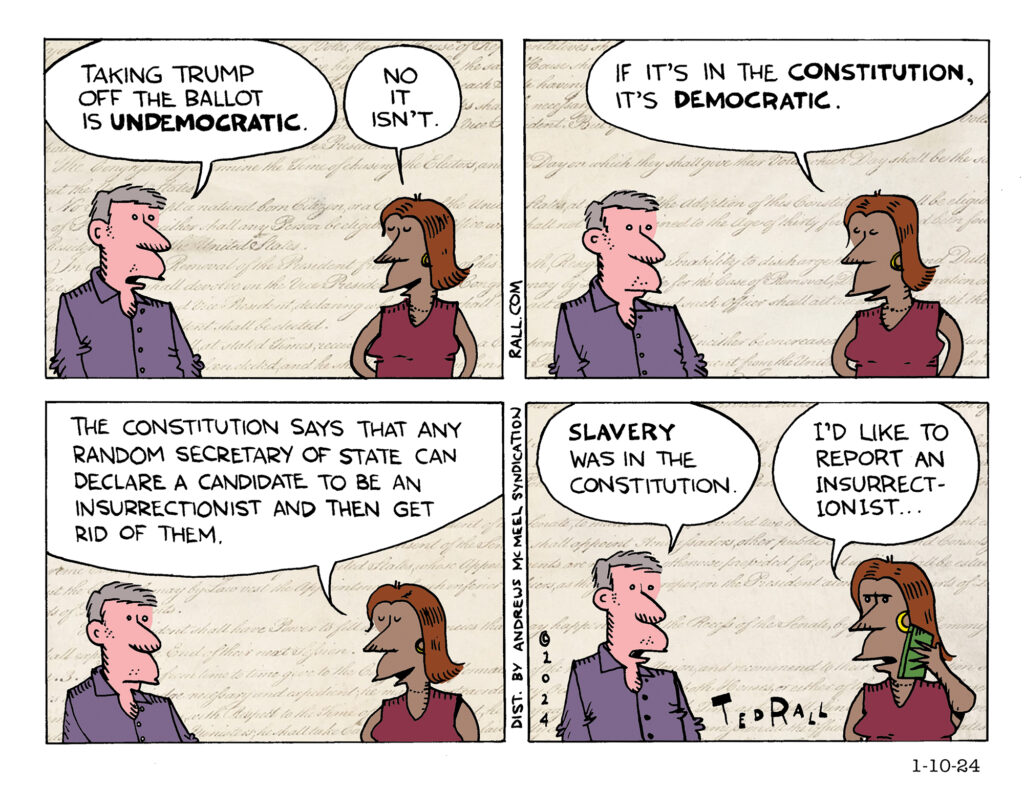Live at 10 am Eastern/9 am Central time, and Streaming 24-7 Thereafter:
Hitler was elected democratically and consolidated his dictatorship after seizing power. Donald Trump just won a fair election. Is he plotting to subvert American democracy?
There are signs that suggest “yes.”
Presidents may only serve two terms, yet Trump repeatedly suggests that he ought to run and win a third term. A “Third Term Project” was announced at CPAC. This past week, Trump called himself “The King” and quoted the French Emperor Napoleon, who argued, “He who saves his country does not violate any law.”
More materially, Trump fired the Chairman of the Joint Chiefs of Staff and two other top military officers. He will be replaced with a MAGA loyalist. History shows that the military is key to a successful coup d’état or revolution. And Trump has a strong reason to want to stay in office: if and when he steps down, he again becomes vulnerable to criminal charges.
Is it 1933 in Germany? Editorial cartoonists Ted Rall (from the Left) and Scott Stantis (from the Right) talking about the prospects for democracy under Trump on today’s DMZ America Podcast.









